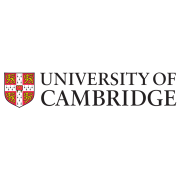Research Assistant - Cambridge, United Kingdom - University of Cambridge
Description
After a heart attack, there is irreversible loss of cardiac tissue with ensuing heart failure.To recover the heart function, we aim to replace the lost cardiomyocytes via stem cells-based approaches using human embryonic stem cells (hESCs)-derived cardiomyocytes i.e.
primary remuscularization. Invoking key developmental events, we improved cardiac function by co-delivery of a key stromal cell type, hESCs-derived epicardium. However, significant barriers to integration with the failing host heart remain.The Wilson lab pioneered the use of a novel RNA therapeutic - modRNA (Myc and Cyclin T1) to coax cardiomyocyte proliferation and recover cardiac function in the infarcted adult mouse heart.
The MRC/Astra Zeneca project aims to identify the key barriers to cardiomyocyte integration in ischaemic heart failure and develop novel therapeutics (e.g. stem cells-based, RNA therapeutics) to accelerate cardiac regeneration. The novel therapeutics will be tested using in vitro engineered heart tissues. We now seek a research technician to assist these studies.The Research Assistant position will provide scientific and research support to Dr.
Ong within the Wilson Lab.
You will support experimental work across the lab and can develop your skills in several areas including stem cell culture, molecular biology, bioengineering, histology, microscopy, transcriptomics, and laboratory management.
As the work is highly collaborative in nature (Professor Sanjay Sinha at Cambridge Stem Cell Institute, Professor Charles E Murry at University of Washington, USA, and Astra Zeneca), there will opportunities to visit other research sites for knowledge exchange.
The University has a responsibility to ensure that all employees are eligible to live and work in the UK.
More jobs from University of Cambridge
-

Teaching Associate in Contemporary Literature Temporary Cover
Cambridge, Cambridgeshire, United Kingdom - 1 week ago
-

Research Assistant
Cambridge, United Kingdom - 3 weeks ago
-

Assistant Curator
Cambridge, United Kingdom - 2 weeks ago
-

Finance Assistant
Cambridge, United Kingdom - 3 weeks ago
-

HR Administrator
Cambridge, United Kingdom - 3 weeks ago
-

Raise Project Co-ordinator
Cambridge, United Kingdom - 2 weeks ago
